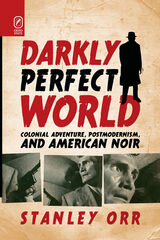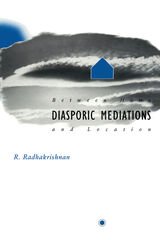4 start with D start with D


Winquist's work is tactical as well as theoretical, showing what kind of work theology can do in a postmodern age. He suggests that theology is closely akin to what Gilles Deleuze and Felix Guattari refer to as a minor intensive use of a major language. The minor intensive theological use of language, Winquist argues, pressures the ordinary weave of discourse and opens it to desire. Thus theology becomes a work against "the disappointment of thinking." Deeply engaged with the work of Nietzsche, Derrida, Tillich, Robert P. Scharlemann, and Mark C. Taylor, among others, this book is a significant addition to contemporary theology.

A series of meditations on the relationship between theory and practice.
In the heated, often rancorous debates that are the “culture wars,” identity politics has been at the center of both popular and academic discussion. In this series of meditations on the relationship between theory and practice, R. Radhakrishnan probes the intersections of poststructuralism and postcoloniality that lie at the heart of contemporary controversies over identity and difference.
Diasporic Mediations records Radhakrishnan's attempt to make theory accountable to the world, even while eschewing narrow methodologies or “isms.” Rather than embracing one totalizing point of view, these essays move in the spaces “between” to establish a productive dialogue between different disciplines and critical practices-to elaborate what the author calls “common ground.” Considering issues of location, language, tradition, gender, ethnicity, nationalism, colonialism, culture, and history, Radhakrishnan reclaims poststructuralism as a tool for both understanding postcolonial reality and working for social change. Diasporic location functions in this book as a perennially negotiated borderland-a real and symbolic space that adjudicates between solidarity and critique. Radhakrishnan's engagement with theory is always motivated by a desire both to build bridges with other communities of color and to engage in meaningful and constructive dialogue. He is particularly concerned with coalition, with overcoming compartmentalization and drawing fragmented movements together into if not a common cause, at least a common set of concerns. Radhakrishnan is adept at synthesizing current debates, reframing questions raised by them so that practical issues can be better understood. Momentous and wise, Diasporic Mediations provides thought-provoking considerations of contemporary issues surrounding identity, serving as a map of the postcolonial condition, or, in the author's words, of how to be “both past- and future-oriented within the history of the present.”Rajagopalan Radhakrishnan is professor in the Department of English at the University of Massachusetts, Amherst. In the heated, often rancorous debates that are the “culture wars,” identity politics has been at the center of both popular and academic discussion. In this series of meditations on the relationship between theory and practice, R. Radhakrishnan probes the intersections of poststructuralism and postcoloniality that lie at the heart of contemporary controversies over identity and difference.Diasporic Mediations records Radhakrishnan's attempt to make theory accountable to the world, even while eschewing narrow methodologies or “isms.” Rather than embracing one totalizing point of view, these essays move in the spaces “between” to establish a productive dialogue between different disciplines and critical practices-to elaborate what the author calls “common ground.” Considering issues of location, language, tradition, gender, ethnicity, nationalism, colonialism, culture, and history, Radhakrishnan reclaims poststructuralism as a tool for both understanding postcolonial reality and working for social change. Momentous and wise, Diasporic Mediations provides thought-provoking considerations of contemporary issues surrounding identity, serving as a map of the postcolonial condition, or, in the author's words, of how to be “both past- and future-oriented within the history of the present.”
READERS
Browse our collection.
PUBLISHERS
See BiblioVault's publisher services.
STUDENT SERVICES
Files for college accessibility offices.
UChicago Accessibility Resources
home | accessibility | search | about | contact us
BiblioVault ® 2001 - 2024
The University of Chicago Press









